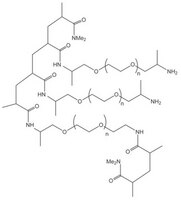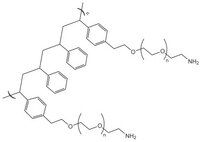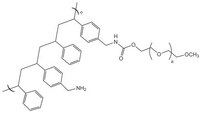SpheriTide™ – the sustainable support for peptide synthesis
SpheriTide™ resin is a novel hydrophilic, high-load support for both research and large-scale production of peptides.
더보기
SpheriTide™ resin is a novel hydrophilic, high-load support for both research and large-scale production of peptides. 간단히
More>>
Less<<

Recommended Products
개요
사양
주문 정보
Documentation
관련 제품 및 어플리케이션
제품 패밀리

PEGA resinsPEGA resins swell extensively in a wide range of solvents and are ideally suited for the preparation of peptide libraries, affinity purification, and on-resin enzyme assays.더 보기 >> |

NovaSyn® TG resins for solid phase peptide synthesisHigh quality resins suitable for continuous flow and batch synthesis – long and challenging sequences더 보기 >> |

NovaGel™ resins for peptide and organic synthesisNovaGel™ resins for peptide and organic synthesis: High substitution, broad solvent compatibility and excellent swelling properties make it an excellent support for peptide and organic synthesis.더 보기 >> |

NovaPEG resinsExcellent support for synthesis of long and difficult peptides. Work synergistically with pseudoproline dipeptides.더 보기 >> |
카테고리
| Reagents, Chemicals and Labware > Novabiochem® Peptide and DNA Synthesis Reagents > Resins for Solid Phase Peptide Synthesis > Resins for Fmoc SPPS of Peptide Amides |
SpheriTide™ resin is a novel hydrophilic, high-load support for both research and large-scale production of peptides. It consists of poly-ε-lysine cross-linked with sebacic acid.
Features
- Loading of base polymer is approximately 3 mmol/g
- Loading of HMPA SpheriTide™ resin is typical 1.8 - 2.2 mmol/g, of Rink Amide SpheriTide™ 1.0 - 1.3 mmol/g
- Low bed-volume to substitution ratio, thus less solvent waste and lower excesses of reagents
- Ideal for research and large scale batch synthesis
- Compatible with a wide range of polar and nonpolar solvents, including MeOH, water, DCM, DMF
- Biodegradable – polymer is completely degraded by proteolysis
- Starting materials for resin derived from renewable resources
Sustainable support
In contrast to other supports that are manufactured from products derived from fossil fuels, HMPA SpheriTide™ and Rink Amide SpheriTide™ starting materials are obtained from renewable biological sources. Poly-ε-lysine is a naturally occurring short-chain polyamide consisting of 25-35 lysine residues linked through their α-carboxyl and ε-amino groups. It is produced by bacterial fermentation for use as a food preservative whereas sebacic acid is made from castor oil for use in the textile industry. SpheriTide™ is thus one of the first sustainable supports especially designed for peptide synthesis - it is also biodegradable as the polyamide backbone is susceptible to proteolysis.
Great swelling properties, high functionality levels
Because SpheriTide™ resin is essentially just a polymer of lysine, very high levels of functionality can be obtained without comprising its swelling and usability in peptide synthesis. Typically, the unloaded polymer has 3 mmol/g of reactive amino groups – this is approximately 2 times that of hydrophobic polystyrene resins and 3-10 times that of other comparable hydrophilic supports such as NovaPEG, PEGA and NovaSyn® TG. Due to addition of the mass of linker, loadings of HMPA SpheriTide™ resin and Rink Amide SpheriTide™ resin drop to 1.8 - 2.2 mmol/g and 1.0 - 1.3 mmol/g, respectively, which is still significantly higher than Wang and Rink Amide AM resins. This high level of substitution means bed-volumes can be kept to a minimum. This results in lower solvent consumption and allows the use of lower excesses of activated amino acids since more concentrated solutions can be employed.






